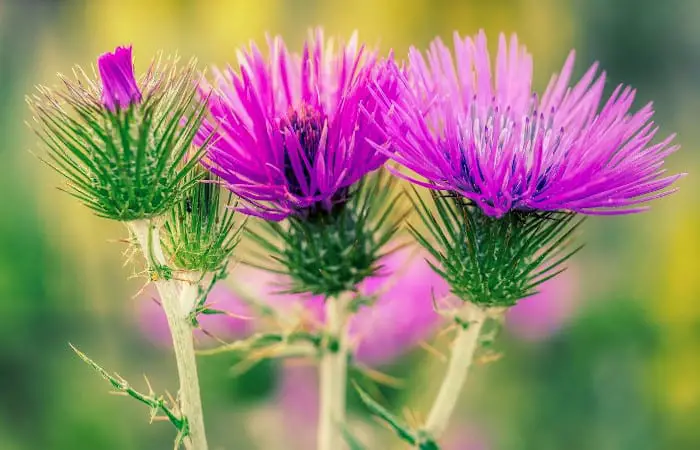Milk thistle is a plant that has been used for medicinal purposes for centuries.
It is believed to have many benefits, including the ability to improve liver function and detoxify the body.
Some people believe that milk thistle can also be beneficial for parrots, but can parrots eat milk thistle?
In this article, we will explore the possible benefits of milk thistle for parrots, as well as whether or not it is safe for them to consume.
What is milk thistle?
Milk thistle is a tall, leafy plant that has been used for centuries as a natural remedy for a variety of ailments.
The active ingredient in milk thistle is a substance called silymarin, which is thought to have liver-protecting properties.
In traditional Chinese medicine, milk thistle is often used to treat digestive disorders and skin conditions.
Today, it is most commonly taken as a supplement to support liver health in humans. Milk thistle seed and dandelion root supplements are also available for parrots nowadays.
Milk thistle is available in capsules, tablets, tinctures, and teas.
Can parrots eat milk thistle flowers?
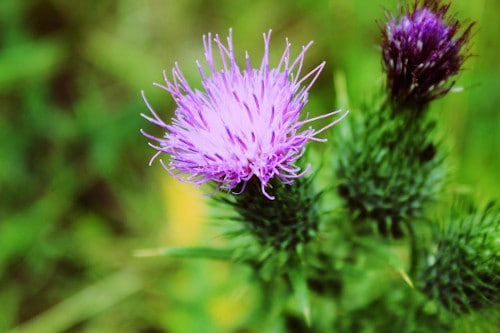
While there is some debate about whether or not milk thistle flowers are safe for parrots to eat, most experts agree that these flowers can provide a number of health benefits for these birds.
In general, milk thistle flowers are an excellent source of nutrients and antioxidants, which can help protect the digestive system and promote overall wellbeing.
Additionally, because milk thistle flowers are mildly bitter in taste, they are believed to help improve appetite and stimulate digestion.
Given these potential benefits, it would seem that milk thistle flowers may be a good food option for parrots looking to stay healthy and thrive.
At the same time, however, it is important to remember that all birds are different, and what works well for one individual may have negative effects on another bird.
As such, it is always best to consult with your avian veterinarian before introducing any new foods into your parrot’s diet.
You may also like: Can Parrots Eat Flowers? 10 Edible Flowers For Your Parrot
Can parrots eat milk thistle leaves?
Yes, parrots can eat milk thistle leaves.
In fact, all parts of the milk thistle plant are edible, including flowers, leaves, and roots.
However, it is advisable to cut the spines off the leaves first to make them more palatable for your parrot.
Milk thistle leaves are a good source of vitamins and minerals for maintaining good health and wellbeing in parrots.
So if you’re looking for a healthy treat for your parrot, milk thistle leaves are a great option.
Can parrots eat milk thistle seeds?
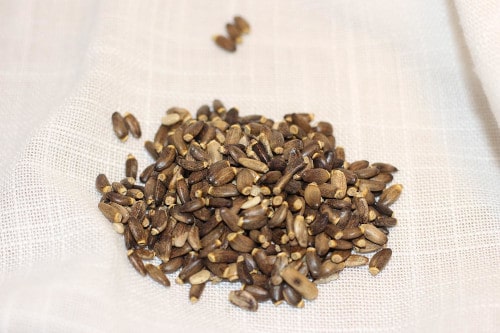
Yes, parrots can eat milk thistle seeds.
These small seeds are packed with essential nutrients that can help to promote overall health in birds.
They are also a good source of protein and healthy fats, which provide energy and support for important bodily functions.
Additionally, the antioxidants found in milk thistle seeds may help to reduce inflammation and protect against cellular damage caused by oxidative stress.
And because these small seeds are easy for parrots to digest, they can be safely incorporated into their diets without causing adverse side effects.
So if you’re looking for a healthy snack for your pet parrot, be sure to give them some milk thistle seeds.
You may also like: How Long Can You Leave a Parrot Alone?
What are the nutritional values of milk thistle?
Milk thistle is a plant that has been used for centuries for its medicinal properties.
The seeds of the plant are often used to make tea, which is thought to have numerous health benefits.
In terms of nutrition, milk thistle seeds are a good source of essential minerals like potassium, calcium, phosphorus, and chloride.
Additionally, milk thistle is rich in antioxidants, which can help to protect cells from damage and defend against disease.
Some studies have also shown that milk thistle may help to protect the liver from damage and improve liver function.
Overall, milk thistle appears to be a nutritional powerhouse with plenty of potential health benefits.
Is milk thistle safe for parrots?
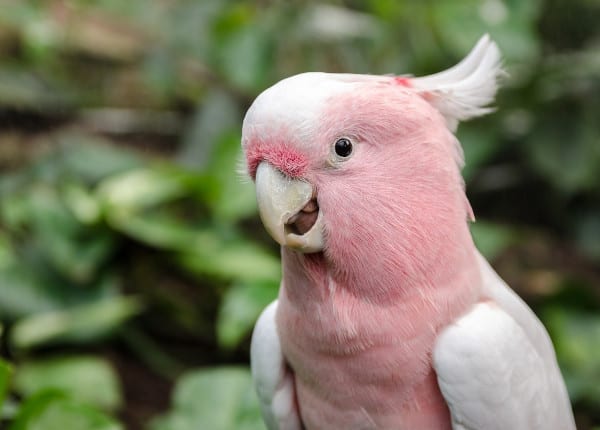
Yes, milk thistle is safe for parrots.
While this plant has been used in traditional medicine to treat a range of conditions in humans, it can also be beneficial for parrots and other birds.
Milk thistle contains a number of powerful antioxidants that help to fight free radicals and boost the immune system, making it ideal for supporting healthy circulation and preventing illness in parrots.
There is some evidence to suggest that milk thistle may help to protect the liver from damage, and it may also have antioxidant and anti-inflammatory properties.
Overall, milk thistle appears to be safe for parrots when used in moderation, and it may offer some potential health benefits.
You may also like: 7 Common Budgie Sleeping Positions and Their Meanings
What are the medical benefits of milk thistle seed and dandelion root supplement to parrots?
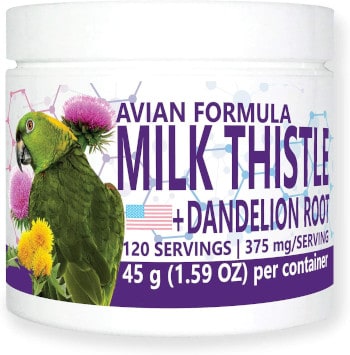
Milk thistle seed is often used as a natural remedy for liver and digestive problems in humans, and it is also sometimes used as a food supplement for parrots.
Milk Thistle Seed and Dandelion Root have long been used to detoxify bird livers from fatty liver disease, which can be caused by high-fat seed diets and liver damage induced by aflatoxin exposures (toxins produced by certain types of mold).
It is also beneficial for post-medication birds. It is safe for parrots and can be used long-term.
Can milk thistle be risky to parrots?
Yes, milk thistle has been shown to have some potential risks for parrots.
While milk thistle is generally considered safe, some studies have found that milk thistle can cause some side effects, such as diarrhea, nausea, and gas.
These unpleasant symptoms may be due to the fact that milk thistle contains a metabolite called silymarin, which can affect certain enzymes in the liver.
Overall, when used wisely and appropriately, milk thistle can be an effective way to promote the health and well-being of your parrot.
How to serve milk thistle to your parrot?
To serve milk thistle to your parrot, start by gathering some fresh leaves or flowers from a milk thistle plant.
You can either chop up the leaves into small pieces for your parrot to pick at, or you can calve out the flowers and use them as a topping for millet spray, which is popular bird food.
Either way, be sure to only feed your parrot small amounts of milk thistle at first and monitor their reaction.
Some additional tips for feeding your parrot milk thistle include using it at only a small percentage of their overall diet and making sure that they have plenty of fresh water available at all times.
Overall, with some careful preparation and moderation, you can help your parrot reap the many benefits of milk thistle.
What herbs can parrots eat?
There are many different types of herbs that are beneficial for parrots.
These herbaceous plants can provide birds with important nutrients and beneficial compounds, helping to support their overall health and vitality.
Some commonly recommended herbs for parrots include mint, thyme, basil, oregano, and parsley.
These aromatic plants are rich in vitamins and minerals, including iron and calcium, which help to keep the birds healthy and strong.
Ultimately, by providing parrots with a variety of nutritious herbs on a regular basis, pet owners can help their birds stay happy and healthy for years to come.
Conclusion
In conclusion, milk thistle is a safe and potentially beneficial herb for parrots.
It is rich in antioxidants and vitamins, which can help to support the bird’s immune system and liver health.
Additionally, milk thistle may also have anti-inflammatory properties.
When feeding milk thistle to your parrot, be sure to start with small amounts and monitor their reaction.
With some careful preparation, you can help your parrot enjoy the many benefits of this nutritious herb.
